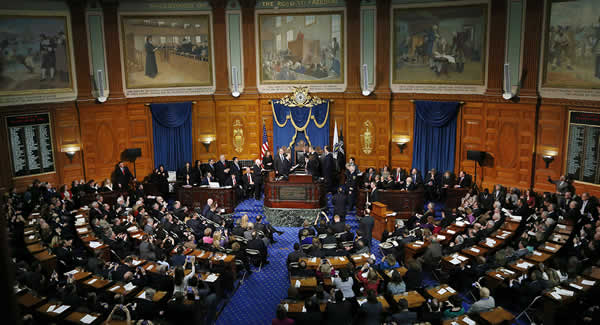Massachusetts is another state looking to bring sports betting to the forefront. The Massachusetts Gaming Commission drafted a document that lays out their scope on the potential local betting market. This report falls in the wake of a pending US Supreme Court case with New Jersey that could open up sports betting to the nation.
The paper has several focuses, including debriefing the SCOTUS case, going over other federal laws applicable to sports gambling (including Federal Wire Act), examines other states and their legislative efforts and pinpoints licensees and operators within state lines. If Massachusetts decides to pursue legalized sports betting, this document will serve as a guiding light. The state is also seeking to launch an investigative committee to study the effects of legal sports gambling.
Interestingly enough, the MGC recognizes that legal sports gambling will not bring in a stream of revenue right away. This is the opposite perception of other states who see legal betting as a windfall of revenue. Massachusetts identified several other benefits, including bringing online sports betting (which makes up the majority of betting activity) from illegal black markets to regulated United States online gambling sources. Another benefit would be tax revenues from betting activities and opportunities for local betting providers.
The MHC made it a point to distinguish between handle and revenue. The reason for this is because many lawmakers and regulators do not understand the difference because they are not versed in the industry. The handle is the total amount wagered. Taxes are not taken out of this figure. Sportsbooks’ gross gaming revenue is the total amount wagered minus the winnings returned to players, taxes and operating costs.
Another point of the document suggests ways the state can compete with offshore sports gambling venues in hopes of pulling traffic. Mobile capabilities are a significant factor. Many different offshore sites offer mobile betting, meaning the majority of bettors are used to mobile accessibility. Legal sites will need a mobile platform to assist with the transition. Another necessity is offering varied wagering types such as props and parlays. The offshore sites provide bettors with a variety of options when it comes to betting. This includes live, or in-play betting. If Massachusetts does introduce legal betting sites, they will have these features.
Plainridge Park, Wynn Boston Harbor and MGM Springfield are the gaming venues on board to support betting options when legalized. These casinos favor the possibility of adding sports betting to their gambling options, meaning the state will look to these licensees as the first legal sports betting vendors in the state.
Massachusetts is a huge sports state with Boston at the center of the action. If the state is able to pass legislation, it could potentially be the second largest market under Nevada. The fact that the state is already working out consumer provisions and protections meaning they are anticipating gambling law reform and looking to capitalize. This is all depends on the SCOTUS case, but Massachusetts is ready to pounce if the verdict goes their way.

